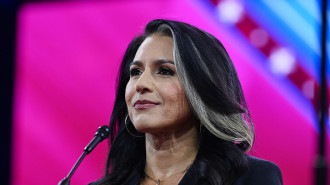Rebellion over 'Rabbi Law' puts more pressure on Netanyahu's fragile governing coalition
Israeli Prime Minister Benjamin Netanyahu's government again appears on the edge of collapse, after a new rebellion from a key far-right coalition ally.
Ultra-Orthodox Shas have been angered after Netanyahu cancelled a vote on the so-called 'Rabbis Law' on Wednesday morning, after opponents and allies said the legislation would put key religious powers in the hands of far-right parties.
The 'Rabbis Law' would shift the appointment of rabbis from town and city councils to the Shas-headed Ministry of Religious Affairs and has been held up by former members of the Israeli emergency government and now MKs from Netanyahu's Likud party.
Shas leader Arye Dery argues that a delay in the law means many Israeli towns are without a rabbi being appointed to oversee weddings and other religious ceremonies.
Opponents, such as war cabinet members Benny Gantz and Gideon Saar, who earlier quit the emergency government, believe the law will result in a "reservoir of jobs" for Shas loyalists.
"This is simply all about jobs," one Likud source told Haaretz.
Analysts say Netanyahu's dropping the proposed law has resulted in a new headache for the premier as he tries to hold together a fragile government amid opportunistic demands from coalition partners.
There has been growing criticism over his handling of the war on Gaza, preceded by anger at his controversial overhaul of the judiciary.
Netanyahu was forced to drop the Rabbi Law from Wednesday's agenda after two Likud MKs opposed the bill, leading to an outburst from Dery who allegedly accused him of being unable to control his own party and threatened to quit the coalition.
The issue highlights the deep divisions within Likud, with secular members of the right-wing party opposing the Rabbi Law and backing the progress of the Haredi conscription bill, which are key policy key demands of the ultra-Orthodox parties in Netanyahu's coalition.
Netanyahu responded to the intra-Likud rebellion by ejecting two party MKs, Tally Gotliv and Moshe Saada, from the Knesset's Constitution, Law and Justice Committee in a bid to appease the Shas Party.
The Likud leader formed a coalition government with far-right parties in December 2022, which was followed by a sharp increase in violence against Palestinians in the occupied West Bank.
Netanyahu has faced growing criticism regarding the security failures that led to the 7 October attacks with critics claiming the premier is making too many concessions to his ultra-Orthodox partners in a bid to stay in power and avoid corruption charges.







 Follow the Middle East's top stories in English at The New Arab on Google News
Follow the Middle East's top stories in English at The New Arab on Google News
![Israel demolished homes in the Silwan area [Getty]](/sites/default/files/styles/image_330x185/public/2024-11/GettyImages-2183868368.jpg?h=199d8c1f&itok=TweR8vd0)

